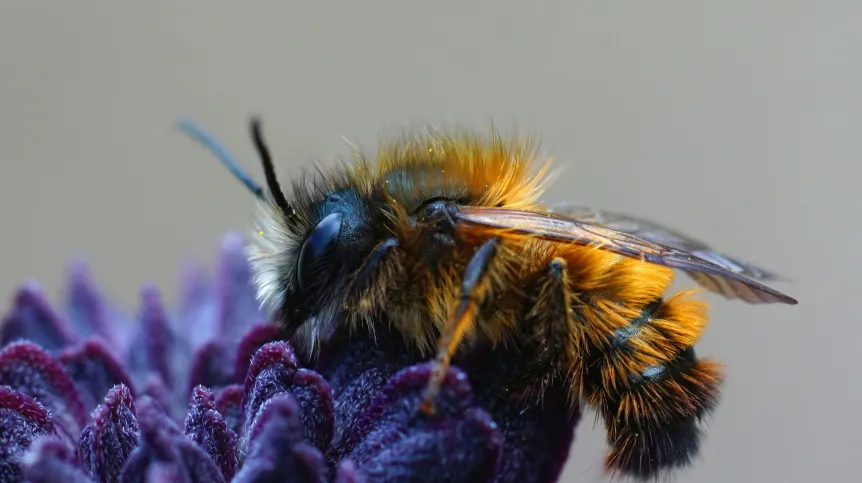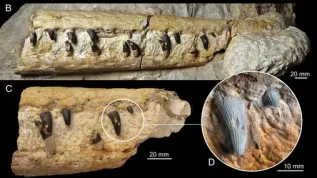
The larvae of bees, including those living in the wild, must consume potassium, sodium and zinc to survive and develop healthily, research on the functioning of the red mason bee has shown.
Scientist from Jagiellonian University found that because bees’ habitats are being changed by humans, potassium, sodium and zinc deficiency in pollen causes insects to die more often.
Focusing on the red mason bee, the researchers fed its larvae with various types of pollen: either with a balanced, full content of micronutrients, or pollen containing too little sodium, potassium or zinc, and then investigated the effects of diet on fitness-related life history traits (mortality, cocoon development, and imago body mass.
They found that potassium deficiency had a similar effect on both sexes: it increased mortality, reduced adult body mass and caused cocoon underdevelopment.
The addition of potassium salt to a potassium low diet improved the survival rate and quality of cocoons, but the normal adult mass of specimens could not be achieved.
Sodium deficiency significantly increased the mortality of both sexes. The addition of sodium chloride did not result in increased survival, but in females it resulted in increased mass.
The content of zinc in pollen affected males the most. Food with a reduced zinc concentration resulted in their greater mortality and lower mass.
In another study, researchers analysed (for the first time in science) the red mason bee's elemental budget. For the atoms of the twelve most important elements, researchers calculated the proportion of their assimilation from food into the body, allocation to body structures and cocoon, and finally the proportions, in which they are excreted.
Authors of the study, Dr. Michał Filipiak and Zuzanna Filipiak said: “Understanding these relationships is important because it allows scientists to understand the importance of a properly balanced diet for the functioning of wild bees and helps to predict how healthy the bees will be in different environments.”
In their opinion, a holistic view of bee health may reveal previously unnoticed relationships between plants and insects, shaping the functioning of the entire food chain. The knowledge that balancing the diet and access to appropriate pollen species shapes the bee population can be used in measures aimed at protecting and improving the food base of bees.
Habitats of bees are being changed by humans. This results in a decrease of both the quantity and the nutritional quality of the available pollen, which should contain key ingredients for the health and life of bees. Potassium, sodium and zinc deficiency in pollen causes insects to die more often, not always be able to form a cocoon and reach smaller body sizes as adults.
It does not live in hives, does not create families, does not produce honey, has no workers serving the queen, and does not raise offspring together. Female mason bees lay their eggs on the mixture of previously collected nectar and pollen, stored in the nest cell and covered with mud. The larvae hatch from the eggs, feed on the collected pollen, pupate and hibernate in cocoons in their adult form for almost a year to provide a new generation in spring.
The paper 'The Scarcity of Specific Nutrients in Wild Bee Larval Food Negatively Influences Certain Life History Traits' is available in Biology: https://doi.org/10.3390/biology9120462 and https://doi.org/10.1038/s41598-020-79647-7 (PAP)
kol/ ekr/ kap/
tr. RL













